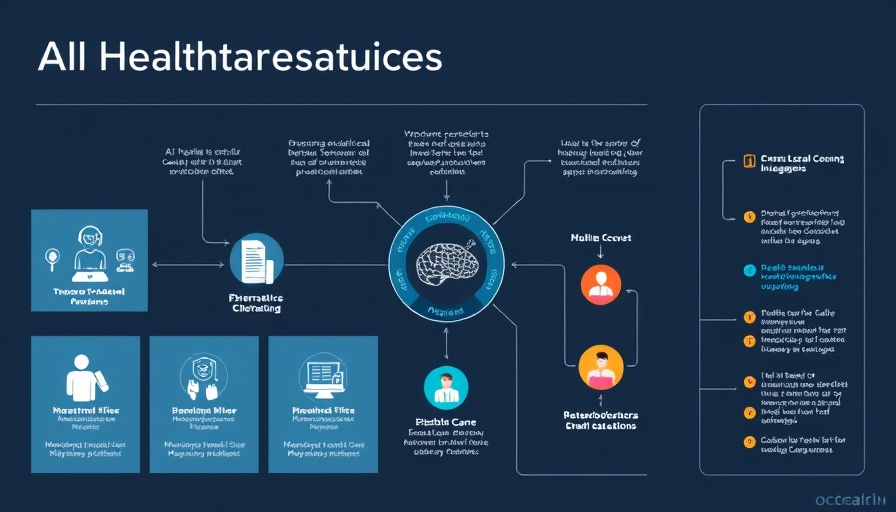
A Shifting Paradigm in Healthcare: Trusting AI Diagnostic Tools
As artificial intelligence (AI) continues to make strides in various sectors, its role in healthcare is garnering significant attention, especially regarding diagnostic tasks. Recent advancements indicate that AI systems can pass medical licensing exams and even formulate diagnostic plans based on simulated patient interactions. However, a pivotal question remains: Can healthcare professionals truly trust these AI diagnostic tools enough to delegate critical responsibilities?
Understanding the Asynchronous Oversight Framework
The research led by Google DeepMind introduces an innovative asynchronous oversight model that ensures patient safety and accountability in AI interactions. This framework recognizes that gathering patient information and providing treatment recommendations are inherently safety-critical actions that should always involve licensed medical professionals. The beauty of this model lies in its separation of duties, allowing AI to handle extensive patient interactions while maintaining a robust check-and-balance system with human oversight.
Gaining Confidence Through Evidence
A recent study shows that under this new system dubbed the Articulate Medical Intelligence Explorer (AMIE), AI tools outperformed human clinicians across various metrics including diagnostic accuracy and adherence to established safety protocols. This underscores the potential for AI not to replace healthcare providers, but to enhance their capabilities—freeing them to concentrate more on patient care rather than administrative tasks.
Benefits of AI Consultation in Medicine
The integration of AI in healthcare facilitates faster processing of patient data, assists in uncovering patterns that might escape human observation, and elevates the overall efficiency of medical practices. Embracing these advanced technologies can lead to enhanced patient outcomes, ultimately transforming healthcare delivery.
Emotional and Social Implications
For many healthcare professionals, there might be an emotional barrier to relying on AI systems, stemming from traditional values of personalized medicine. As innovative as AI tools are, the human element in patient care remains paramount. Understanding this emotional connection is crucial in addressing concerns and ensuring a smooth transition to AI-assisted systems.
Conclusion and Call to Action
As AI technology evolves, it is essential for healthcare providers to stay informed about these advancements. Embrace the innovative tools at your disposal, actively seek education on AI fundamentals, and engage in discussions about their practical applications in healthcare. In doing so, you not only enhance your practice but also contribute to a future where technology and healthcare coexist beneficially. Explore AI learning resources to get started on this transformative journey today.
 Add Row
Add Row  Add
Add 




Write A Comment